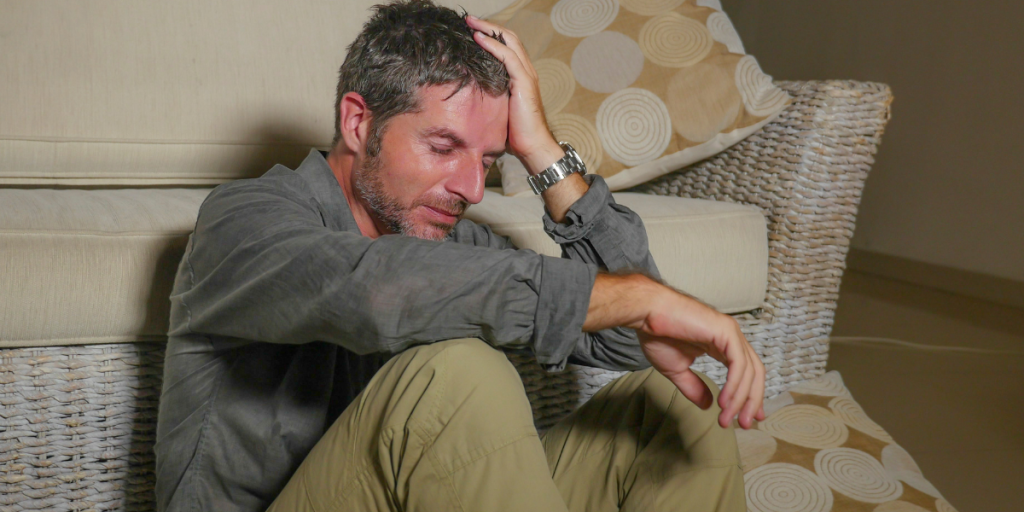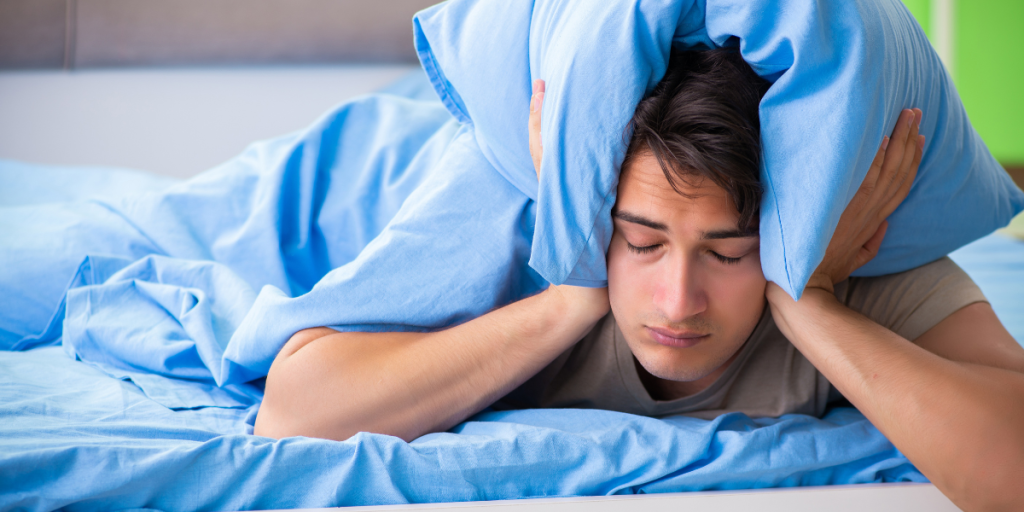It’s hard enough to see the world as a source of constant threat. But it’s even worse to believe life has to be that way. And yet, that’s what the lies of depression and anxiety want you to believe.

Chances are, if you’re well-acquainted with depression and/or anxiety, you already believe some of their lies and don’t even realize it. Some lies feel so believable that they indoctrinate you one episode at a time.
And, before you know it, you’re convinced that “this is life”, and nothing is going to change.
Before we explore some of the shameless lies of depression and anxiety, remember that a diagnosis is actually one of the first steps toward healing. It’s nothing to be ashamed or afraid of.
To the contrary. Recognizing depression and anxiety for what they are is the surest way to put them in their place – and take back control of your life.
First, this important message, which will appear again toward the end of this article:
If you or someone you know is at risk of self-harm or suicide, please reach out to the Suicide & Crisis Lifeline by calling or texting 988. Help is available 24/7.
Now let’s look at how depression and anxiety try to destroy life from the inside out.

10 Lies of Depression and Anxiety

- You’re not good enough.
Anxiety loves this one. It’s how it blurs the line between striving to improve and believing, at your core, that you’re simply not good enough. Never have been, never will be.
And all the demons of self-hatred join on that side of the fence. They remind you of every last mistake, imperfection, and that-was-great-but-could-have-been-better effort on your record, which they unapologetically attach to your whole sense of self.
This nasty lie also loves keeping the anxious person on the hamster wheel of seeking to be good enough. It knows, at the same time, that eventually the futility will lead to a lamenting of self-unworthiness.
A depleted or non-existent self-esteem is often at the heart of depression – another reminder of how intimately linked anxiety and depression are. - You’re lazy.
This is one of the sneakiest lies of depression and anxiety, which are already messing with your mood, concentration, cognition, and decision-making. But now they’re going to blame you for not being super-mom, employee of the month, and the Queen of Clean.
It’s right up there with the lie above – you’re not good enough. This one, however, twists the knife by implying that, if you weren’t so damn lazy, you might actually amount to something.
So anxiety will tell you not to sleep so you can work on…whatever. Something…anything…just so you can say you’re not lazy. You’ll be exhausted and frazzled, but no one will be able to accuse you of being lazy.
And depression will reinforce the lie by convincing you that “lazy” is what and who you are. (Even though there are days when you can’t bring yourself to put your feet on the floor or open the blinds. And you will lie there in agony, not relaxation.)
Go ahead, jump onto the self-negativity wagon. Tell yourself how lazy you are for not making your bed, washing your hair, or having your taxes done by D-Day. That’s what depression and anxiety want you to do.
They want you to see the rest of the world as one big just-do-it Nike campaign, and yourself as a leisurely pair of Keds.
Life is fast-paced, competitive, demanding. There’s no excuse for not keeping up. And there’s no excuse for laziness.
So say anxiety and its sidekick depression…as you say good-bye to your self-esteem. - You have nothing to offer the world.
This lie that depression tells you is rooted in cognitive distortion — an exaggerated, false, or irrational thought or belief. And, not surprisingly, those who are depressed are more vulnerable to it than those who aren’t.
From all-or-nothing thinking to personalizing to overgeneralization and emotional reasoning, cognitive distortion usually focuses on negative extremes.
You never do anything right. You made a mistake, so now you’re a failure. Everyone is laughing at you. No one will ever love you. Everyone else is better than you. The world has no use for your mediocre-at-best talents.
The danger in even having a conversation with this deception is that your self-esteem and overall sense of self will erode. (If I have nothing to offer the world, then why am I even here?)
Depression then deepens and takes root with even more lies. - Worrying will actually change things.
If you are one of the more than 301 million people who suffer with some form of anxiety, you’re well-versed in worry. Fretting, panicking, ruminating, imagining the worst – you would borrow trouble if you didn’t have enough of your own.
Worry is the culprit behind many sleepless nights. Your brain doesn’t shut down. You go over scenarios in your mind, holding details in the forefront, just so you don’t forget something important.
And for what?
So you can hold onto a sense of control of your life and environment, even if only to feel prepared.
Worrying keeps you a step ahead of the boogeyman (or so you believe). And, if the boogeyman has already wreaked havoc, you have all the more reason to worry about what to do next. - No one wants to be around you, so you should get used to being alone.
A harsh reality of depression is that it is extremely isolating. Anxiety is too.
If you’re depressed, you’re not going to feel enthusiastic about much. Your hobbies and interests will lose their appeal. Your energy for socializing will be babkas.
And anxiety can conjure up the worst before it’s even a possibility. Or it can underlie a general discomfort with crowds and socializing in general.
For Highly Sensitive People, overstimulation will register in the body the same way that anxiety does.
If you’re feeling anxious or depressed, you will probably convince yourself that your negative mood will be palpable, if not contagious. You don’t even want to be around you, so why should anyone else? - Depression and anxiety are all in your head and can’t cause physical symptoms.
Oh, the lies, the lies, the lies!
How easy it is for depression and anxiety to flaunt the untruth that the body and brain/mind are mutually exclusive! Nothing could be further from the truth!
Anxiety keeps the body in a state of fight-or-flight, which is fueled by run-for-your-life hormones. Cortisol and adrenaline have their place, but not on a constant basis.
People with anxiety disorders have higher risks of cardiac and breathing issues, for example.
And those with depression are prone to cardiac problems, lower sex drive, and chronic pain.
Both anxiety and depression are conducive to sleep problems, changes in appetite, and a weakened immune system.
(For a more in-depth explanation of the effects of anxiety and depression on health, read here.) - Everyone gets depressed sometimes. You need to learn to snap out of it.
This is a huge lie and source of shame for those who suffer from depression.
Yes, we all have periods of emotional sadness in response to life circumstances. We lose a loved one to death, receive some unwanted news, go through a breakup, underperform at school or work.
Sadness and disappointment are natural and healthy responses in these situations.
Depression, however, is a psychiatric disorder with diagnosable criteria that take into account type, intensity, and duration of symptoms.
Unlike a passing case of the blues, depression has physiological and genetic origins. It can also have complex and long-lasting effects on the body and health in general.
Depression is not something you “just snap out of.” It’s not a defect in character, nor a statement of ingratitude, nor something to “”pull yourself up by the bootstraps” from.
Turn that frown upside-down! and Too blessed to be depressed! may sound like well-intended t-shirt slogans. But they are likely to do more harm than good. (Toxic positivity is not helpful.) - Nothing matters.
Cue Bohemian Rhapsody.
Anyone who has suffered with depression understands at a cellular level the line “Nothin’ really matters, anyone can see. Nothin’ really matters to me.”
It’s the mantra in the dark voice cloud that hangs over your head and follows you like an angry hornet. You say it without making a sound because it resonates from a place you don’t even know how to access, let alone control.
You want things to matter, but they don’t. Perhaps you remember a time when things did matter, but you don’t even recognize that person or life anymore.
Everything is blah, drab, meaningless, superficial. The earth is flat, not orbicular. Life is two-dimensional, and that’s on a good day. Your internal, knee-jerk response to everything is some version of “Why bother?”
It’s the curse of depression. It removes the color out of life and reduces it to gray. You know there’s color, but you can’t see it. You simply can’t see it.
And, after a while, you wonder if all that color was real in the first place. Perhaps you’re the realist, and the rest of the world is living a fantasy. (For a description of the hypothesis of depressive realism, read here.) - Suicide would make things better for everyone.
Suicidal depression (or depression with suicidal thoughts) can be symptomatic of clinical depression, or major depressive disorder (MDD).
Yes, it’s true that most people who are depressed do not die of suicide. But, if you have ever suffered from suicidal ideation, you know what it’s like to believe that suicide is the only way out.
One of the biggest lies depression tells you is that suicide will end your unbearable pain and spare others from having to deal with you.
It is the cruelest of lies, as it forces you to struggle against the most primal of all instincts: self-preservation. It also distorts the reality of your value in the world and to those who love you.
In this final act of deception, depression slams you with the summation of all its other lies — helplessness, failure, uselessness, meaninglessness…hopelessness.
If you or someone you know is at risk of self-harm or suicide, please reach out to the Suicide & Crisis Lifeline by calling or texting 988. Help is available 24/7. - Things are never going to get better.
If there is any message you should take away from this list of lies from depression and anxiety, it’s that they are just that: lies.
Your feelings are real. Your symptoms are real. The effects of anxiety and depression on your life are real.
But you are not flawed. And you certainly are not hopeless or beyond help.
You also are not alone.
When you wonder if there is any hope for getting better, remember that hundreds of millions of people struggle with anxiety and depression. And expert help – therapy, support, medication – is always available.
You never, ever have to bear the burden of anxiety and/or depression alone.

